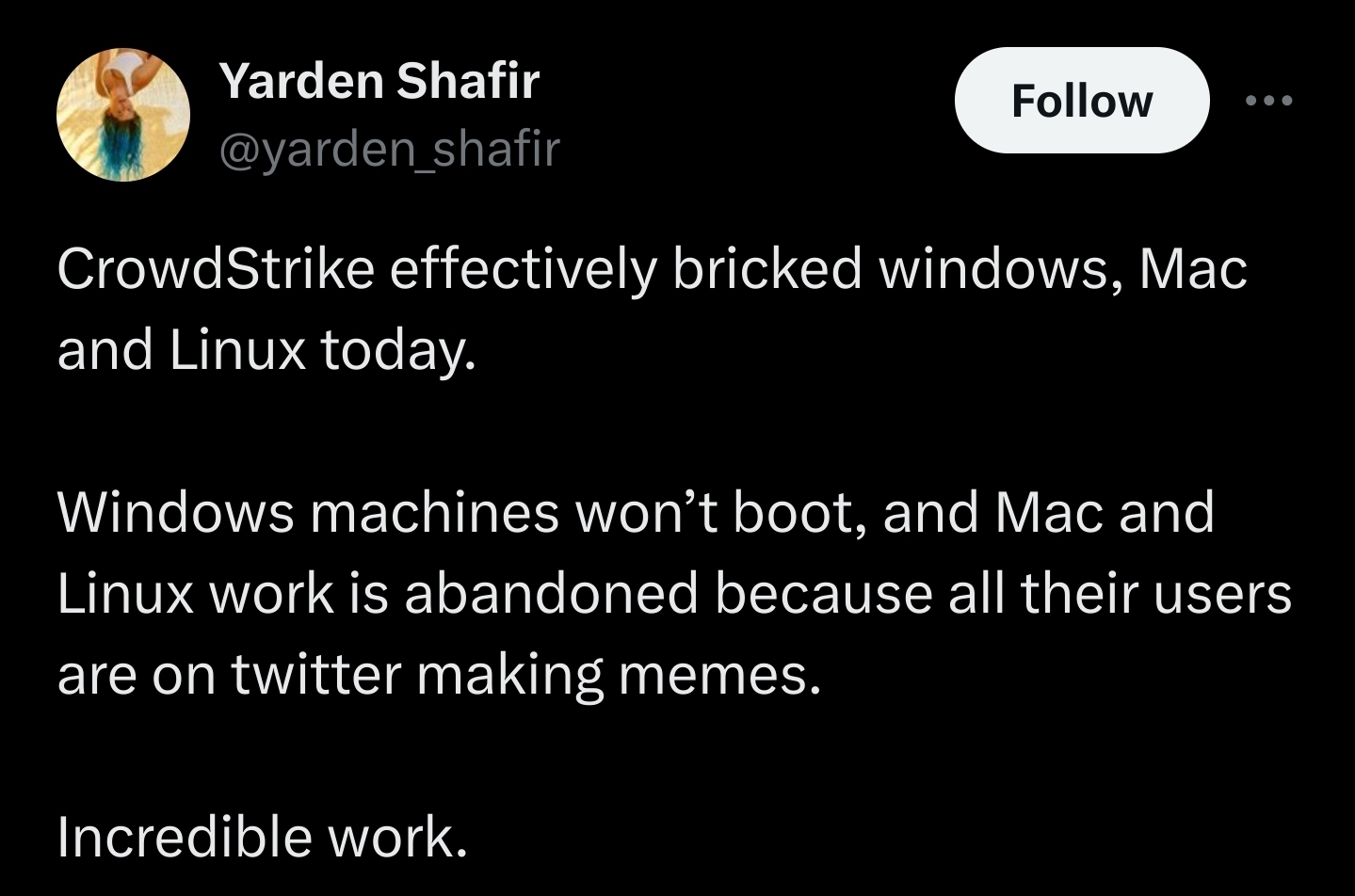this post was submitted on 19 Jul 2024
2025 points (99.1% liked)
linuxmemes
21448 readers
900 users here now
Hint: :q!
Sister communities:
Community rules (click to expand)
1. Follow the site-wide rules
- Instance-wide TOS: https://legal.lemmy.world/tos/
- Lemmy code of conduct: https://join-lemmy.org/docs/code_of_conduct.html
2. Be civil
- Understand the difference between a joke and an insult.
- Do not harrass or attack members of the community for any reason.
- Leave remarks of "peasantry" to the PCMR community. If you dislike an OS/service/application, attack the thing you dislike, not the individuals who use it. Some people may not have a choice.
- Bigotry will not be tolerated.
- These rules are somewhat loosened when the subject is a public figure. Still, do not attack their person or incite harrassment.
3. Post Linux-related content
- Including Unix and BSD.
- Non-Linux content is acceptable as long as it makes a reference to Linux. For example, the poorly made mockery of
sudoin Windows. - No porn. Even if you watch it on a Linux machine.
4. No recent reposts
- Everybody uses Arch btw, can't quit Vim, and wants to interject for a moment. You can stop now.
Please report posts and comments that break these rules!
Important: never execute code or follow advice that you don't understand or can't verify, especially here. The word of the day is credibility. This is a meme community -- even the most helpful comments might just be shitposts that can damage your system. Be aware, be smart, don't fork-bomb your computer.
founded 1 year ago
MODERATORS
you are viewing a single comment's thread
view the rest of the comments
view the rest of the comments

It's not Microsoft's fault a third party company wrote a kernel module that crashes the OS.
Unlike the mobile world where apps are severely limited and sandboxed, the desktop is completely the opposite. Microsoft has tried many times to limit what programs can do, but encountered a lot of resistance and ultimately had to let it go.
Windows requires that antuviruses run at kernel level, programs which are notoriously buggy and harmful. It is a design flaw to require users to implement mandatory security features in this way. (it is literally not possible to run windows 10 or 11 without an antivirus) Similar security programs on Linux do not run at kernel level, nor should they.
Furthermore, every copy of Windows since Windows 7 requires that kernel modules are signed by Microsoft themselves. Microsoft personally signed off on this code that crashed millions of computers.
Antivirus software for Linux also has kernel access. You can't intercept OS operations like opening files or launching executables without kernel access. And some of the companies I worked at also required antivirus software on Linux servers.
You can absolutely run Windows without an anti-virus, it has plenty of security features built-in.
It's all a matter of trust. Do you trust your engineers to properly configure machines to be secure and not run exes from dubious sources, or do you trust a cybersecurity company to do it for you? Anti-virus software nowadays is more about restricting users from doing stupid shit.
Oh, and signed drivers aren't about Microsoft validating and testing every driver. It's about verifying that the driver comes from a trusted company and isn't tampered with.